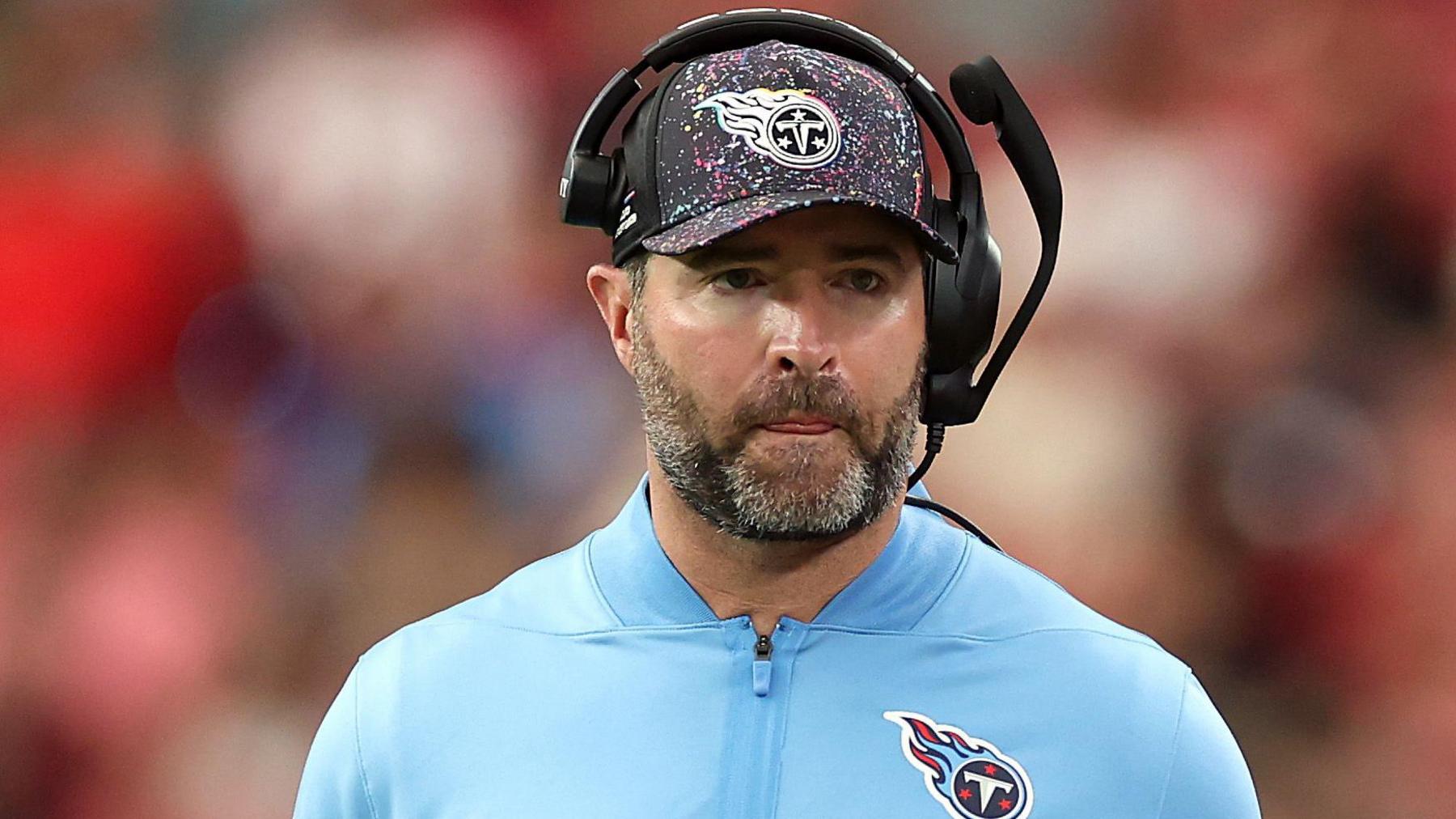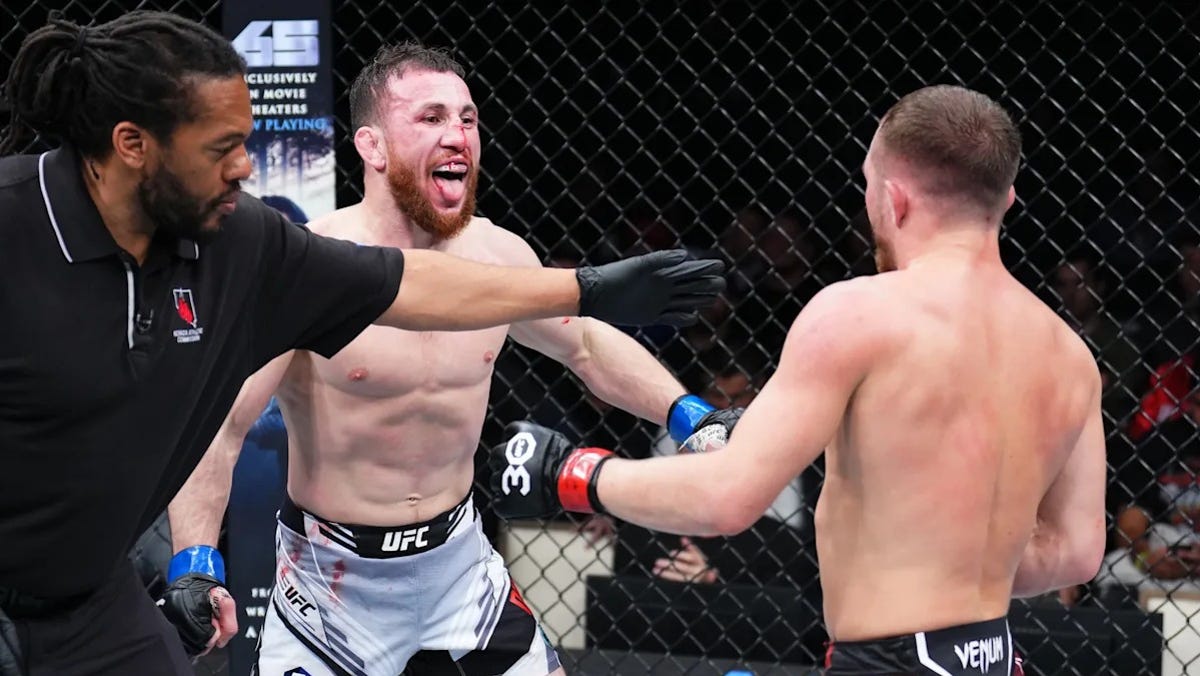Anyone can list the best players in the NBA, but basketball is as much about chemistry as it is talent. Within each of the league’s 30 teams is a hierarchy, and how well each of the five players on the court understands and performs his role within that hierarchy is every bit as important as his individual skill.
While depth was vital to the success of the Thunder and Pacers last season, and we understand coaches often say, “It’s about who closes the game; not who starts it,” the pursuit of a roster’s most cohesive five-man unit is still paramount. Three of last year’s top four starting lineups on our list — the Thunder, Knicks and Timberwolves — reached the conference finals.
Advertisement
In this series, we rank each team’s starters for a broader look across the league. Ideally, a lineup has its superstar, a deferential co-star, a third star who owns his role, a fourth option and a fifth starter to tie it all together — clear Nos. 1, 2, 3, 4 and 5. How close does your team come to an ideal lineup?
(Grant Thomas/Yahoo Sports Illustration)
No. 1 options: The Leading Men
What is a No. 1? Here is how we described him last year:
He is the team’s alpha — often by personality, always by ability. Ideally, everyone recognizes he is the squad’s top dog; teammates fall in line behind him, and opponents make him the primary focus of their game plans. Clutch situations typically run through a No. 1. He settles you down when you are on the wrong end of a run. He bails you out if possessions go haywire. He gets his.
He comes in many forms, but you know him when you see him. King James or The Hick from French Lick. Air Jordan or The Chairman of the Boards. Magic Johnson or The Big Fundamental. In whatever form, he is in pursuit of the pantheon, for you cannot be an all-timer as a No. 2.
Let me add: His alpha-ness can include defense. This isn’t just about being a No. 1 scoring option. His offense should be somewhat commensurate with that defense — enough for his teammates to trust in him — but this is about the total package of a player. How much does he wield his influence on a game?
Advertisement
[Yahoo Sports TV is here! Watch live shows and highlights 24/7]
This is also about projecting where that player is going to land by season’s end. Which is why you might be surprised by how high Victor Wembanyama is ranked on this list. It is difficult, then, to rank, say, Wembanyama against Stephen Curry, given their ages and impact on either side of the ball. Subjectivity creeps into every list, so you’ll just have to trust us — or argue with us. That is the fun of this exercise.
Lastly, we sourced these lineups and each player’s status within them with beat reporters around the league. We appreciate everyone who casted a roster; there are too many people to thank in this space. And we recognize that not every player listed here will be in an opening-night starting lineup. Injuries occur. Coaches change their minds. But just know that this is our best guess at the rotations we will likely see most often from each team.
Without further ado, your five best No. 1s …
1. Nikola Jokić, Denver Nuggets
Jokić is almost universally considered the game’s best player. He has finished either first or second in the NBA’s MVP race each of the past five years, winning the honor three times and sprinkling in a Finals MVP award in between. Whether or not he wins the award each season is more dependent on his team’s effort than his own, and the Nuggets have retooled in a way that should maximize his performance this season.
Advertisement
As it were, Jokić averaged a 30-point triple-double last season, ranking among the league’s top three in points, rebounds and assists per game. Oh, and he ranked second in steals per game, top 10 in field-goal percentage and top 20 in 3-point percentage. He was the best in the NBA among ball-dominant stars in true shooting percentage, player efficiency rating, box plus/minus and value over replacement player.
Statistically, at least, there is no argument for anyone but Jokić here, and it feels that way, too. Denver was 21.3 points per 100 meaningful possessions better when he was on the court than when he was off of it, according to Cleaning the Glass, best among anyone who played more than 150 minutes last season.
2. Shai Gilgeous-Alexander, Oklahoma City Thunder
What a season Gilgeous-Alexander enjoyed in 2024-25. The 27-year-old point guard won the league’s MVP award, leading the Thunder to 68 victories — only the seventh team ever to win that many games — and a championship, tacking on a Finals MVP honor. His ascent up the all-time rankings is on a steep incline. Only 10 players in history have ever won the regular-season and Finals MVP awards in the same season.
Advertisement
Oklahoma City outscored opponents by 12.8 points per 100 possessions last season, second only to Michael Jordan’s 72-win 1995-96 Chicago Bulls, and Gilgeous-Alexander was the driving force. He can, for the most part, get whatever shot he wants, carving into the lane, shifting and grifting his way to baskets and free throws in bunches. His 32.7 points per game led the league last season by a wide margin, and his PER (30.7) was, likewise, second among guards only to Jordan (who eclipsed SGA’s PER four times).
When anyone finds himself in the same conversation as Jordan this much, he deserves to at least be the No. 1 guard listed here, and oddsmakers currently give him their edge (again) over Jokić in the MVP race.
3. Giannis Antetokounmpo, Milwaukee Bucks
No team needs its superstar this season more than the Bucks need Antetokounmpo. He has earned his way onto the All-NBA first team in each of the past seven seasons, finishing top four in the MVP voting every year, including third in three of the past four seasons. (He won the award in both 2019 and 2020.)
Advertisement
Milwaukee lost Damian Lillard to an Achilles injury in last season’s playoffs, waived and stretched the remaining two years of his contract and replaced him with Myles Turner in free agency. The rest of the roster leaves plenty to be desired, but Antetokounmpo alone should put them in the playoff discussion.
He is that good, averaging a 30-12-6 since the start of the 2018-19 campaign. Nobody gets to the rim as often as he does. He is a wrecking ball, and godspeed to anyone who stands between him and the basket in the open court. And did we mention that he also has a Defensive Player of the Year award to his name?
4. Luka Dončić, Los Angeles Lakers
Dončić was second on this list a year ago, if only because he was coming off a trip to the NBA Finals with the Dallas Mavericks. Last season was a wild one for Dončić, who was traded to the Lakers, for whom his health and defense remained concerns. (By no means is this a vote of confidence in Mavericks general manager Nico Harrison’s decision to trade Dončić. The 26-year-old is en route to becoming an all-timer.)
Advertisement
Still, there is also some lingering concern about Dončić’s fit with LeBron James as co-superstars on a team starved for defense, both because of their overlapping ball-dominant skill sets and different ages. The news of the 40-year-old’s sciatica, which could cost him a few weeks, does not inspire confidence.
Dončić, though, when healthy — and he looks as fit as ever — is an offensive mastermind, averaging a 30-9-9 over the past six seasons. He made the All-NBA first team for five straight years until failing to qualify for the league’s awards last season. He plays at his own pace, either stepping back into 3-pointers or plodding his way to a spot inside the arc, where he can score in a variety of ways or find an open man. His force-of-nature mentality, and the talent around him, will drive the offense to extraordinary heights.
5. Anthony Edwards, Minnesota Timberwolves
Welcome to the top five, Anthony Edwards. He ranked eighth on this list a year ago, and then made a second consecutive trip to the conference finals in the crowded West — with Julius Randle as his co-star in place of Karl-Anthony Towns — firmly supplanting himself as one of the league’s fastest-rising stars.
Advertisement
Edwards is a three-time All-Star at only 24 years old and has at least another leap left in him. One will happen eventually. And why shouldn’t it happen this season? He averaged a career-high 27.6 points per game last season on personal-best efficiency, shooting 40% on 10.3 attempts a night from 3-point range. Only Stephen Curry and James Harden have made more triples in a season than Edwards did in 2024-25.
None of this makes mention of Edwards’ athleticism, which is second to none. He is as explosive as he is confident, and that is saying something. Much room is left in his game for improvement as a free-throw merchant and as a playmaker. There is a world where he averages north of 30 points per game and plays his way into a more serious MVP conversation, where he has finished seventh each of the past two years.
The honorable mentions
6. Stephen Curry, Golden State Warriors
Advertisement
7. Victor Wembanyama, San Antonio Spurs
8. Jalen Brunson, New York Knicks
9. Donovan Mitchell, Cleveland Cavaliers
10. Cade Cunningham, Detroit Pistons
11. Paolo Banchero, Orlando Magic
12. Kevin Durant, Houston Rockets
13. Kawhi Leonard, Los Angeles Clippers
14. Anthony Davis, Dallas Mavericks
The rest
15. Ja Morant, Memphis Grizzlies; 16. Devin Booker, Phoenix Suns; 17. Jaylen Brown, Boston Celtics; 18. Pascal Siakam, Indiana Pacers; 19. Trae Young, Atlanta Hawks; 20. Joel Embiid, Philadelphia 76ers; 21. Zion Williamson, New Orleans Pelicans; 22. Lauri Markkanen, Utah Jazz; 23. LaMelo Ball, Charlotte Hornets; 24. Scottie Barnes, Toronto Raptors; 25. Zach LaVine, Sacramento Kings; 26. Tyler Herro, Miami Heat; 27. Coby White, Chicago Bulls; 28. Deni Avdija, Portland Trail Blazers; 29. CJ McCollum, Washington Wizards; 30. Cam Thomas, Brooklyn Nets



